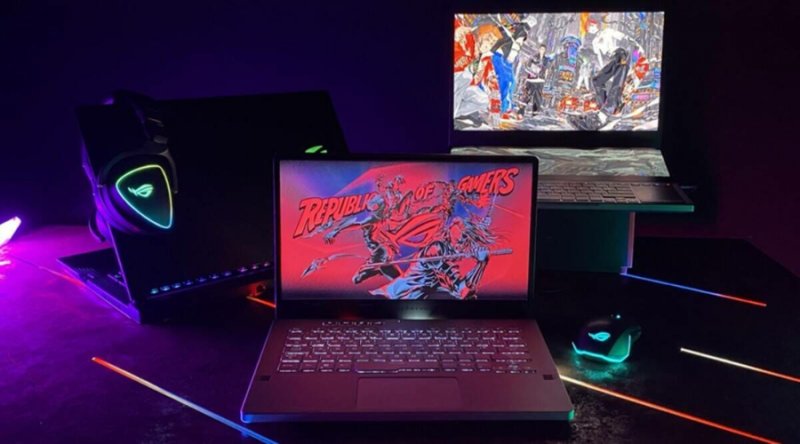The first thing to consider while buying gaming laptops is the type of budget you are working with. Naturally, you could invest in the highest-powered gaming laptop on the market and it would suit your needs.
In most cases, though, we have to stretch our budget with the features we’re looking for. We might even have to remove some of our desired features in order to pay for the device. Now you don’t need to worry about your laptop buying problems, because gaming laptops, are presented a wide range of laptops with reasonable rates and offers now online on Jumbo.
However, one thing to think about is the longevity of the device you are buying. When things start to go wrong on a computer, you will be faced with a lot of expenses. Those expenses may occur in the future, so your budget might have changed at that time.
It’s easy to forget about the future costs associated with a device, but it’s important to think about them. In some cases, you may need to buy a gaming laptop OR computer a few years after you bought your last one, and that’s a hefty blow to the budget.
So if you find that options are lacking within your budget, it might be wise to wait a bit and save up. Gaming laptop offers in UAE will save your expenses. If you invest in best gaming laptop, the chances that you’ll need to buy another one will decrease
For further to find a reasonable gaming laptop accordingly to your budget check out the offers price in Dubai on trusted websites such as Jumbo.
Once you have your budget, the first thing to look at is the brain of the computer, the CPU.
Understanding CPUs
The “CPU” is the central processing unit of a computer and includes a large number of small transistors. These are small devices that are used to amplify, alter, and direct electrical signals.
The more transistors, the more powerful the CPU is in most cases. The CPU is composed of the arithmetic logic unit and the control unit. These two units are tasked with accessing information from the computer’s memory unit and translating it into actionable tasks.
When selecting a CPU, the thing to look for is the number of “cores” it has. A core is a unit within the CPU that allows a respective task or group of tasks to complete. If the CPU is the brain, you can think of a core as the place where the brain thinks about something.
Every time you add a core, your computer can think about more things at once. If you have a single core computer, the speed is very slow when you are doing more than one thing at a time.
Increase the cores and things get faster and faster. The most cores available is a whopping 56. Most computers have four to six. However, do you really need that many cores in your gaming PC?
Choose the number of cores
At a certain point, the core strength of your CPU will outweigh the needs you have as a gamer. That means you’ll spend more money than you need to at first.
If you are running very complex games, you will need more cores. You should never have to use more than 12 cores, while most of the gaming experience starts to level off after around 6 or 8 cores.
The margin of difference between 6 and 8 cores may be important to you if your game of choice is on the more complex side. The same is true if you use your computer for other things while gaming.
For example, you can stream music while playing or communicate with other people in a web interface. Those are all things that make a difference.
Note also that 4 core CPUs aren’t bad by any means. They will get the job done, although you may be frequently late and have trouble loading things at times. The speed and quality of your gaming experience is a result of your CPU and GPU, which we will explore below.
Understanding GPUs
GPUs are “graphics processing units.” In most applications, the GPU doesn’t matter too much. That is, for people who use their computers for Word documents and general browsing, the quality of a GPU is not that important.
You can still stream Netflix and watch Youtube videos in high resolution with a standard GPU. Those who use their computers for gaming and do a lot of 3D rendering, however, need a good GPU.
These are used in computers, phones, and other devices to serve as partners for the CPU. Graphics processing units come in two different types, integrated and discrete.
Integrated GPUs exist in conjunction with the CPU and are located inside the computer. It shares memory with the CPU and the computer, allowing it to seamlessly work with those components.
Discrete GPUs sit outside of the computer and have their own memory cards and processing cards. That means you can invest in aftermarket GPUs and improve their image processing capabilities.
The main thing to think about here is the quality of the image and the ability of the computer to process the graphics of the game. Modern games require more GPU power than older games like League of Legends or World of Warcraft.
Screen resolution
If you’re looking for best laptop for gaming, the screen resolution is likely to match the processing power of the GPU. However, if you’re mixing and matching, try to match the resolution to the GPU’s capability.
If you get a low resolution monitor or display, you will lose money by investing in a better GPU. However, you may want to consider your screen resolution if you want to invest in a discrete GPU.
Improving your computer’s graphics capabilities with a low-resolution display might have some benefits, but it’s always better to have a resolution that can express the full capabilities of your premium gaming laptop.
The importance of memory (RAM)
Memory exists on the computer’s hard drive as well as in its RAM storage. RAM stands for “random access memory” and it plays a big role in the speed of your computer. RAM gives your computer the ability to access its memory much faster than it would if you were using the hard drive.
This comes into play when it comes to things like games, which include tons of data and storage to work with. The more you play, the more data you have to access. On screen, accessing that data can be as easy as clicking an icon and browsing through the saved files.
However, keep in mind that the computer must access that information in a fraction of a second. The computer may also be accessing dozens of bits of information simultaneously, so the extra RAM helps a lot.
Another thing that benefits overall performance is the fact that RAM stores whatever you’re actively working on in one accessible place. So if you start working on a particular program, RAM will pull that program’s memory to the surface in case you need it.
This is something your hard drive does not do. “Normal” everyday users should have around 4 GB of RAM. Those who invest a little more should have around 8GB.
Players, on the other hand, require much more. If you plan on gaming, try to get closer to 32 GB of RAM. This is one of the things you need to prioritize in your search.
RAM can be more important than GPU power, depending on the type of game you play.
Prioritize different functions
In the combination of everything described above, there are a few things that you need to prioritize. However, it is difficult because everything has its place. It is important to have a solid size of CPU, GPU and RAM.
That said, maximizing all of those features does cost the budget well above the average. So what do you put first?
The answer depends on what you plan to do with the computer, precisely. Sure, you’re going to use it to play. However, what kind of game do you play most often?
It seems like most people would play new games, but that’s not always the case with computer games. Many gamers stick to games that were made in the mid-2000s. Those games get updated, but are more or less the same as before.
In those cases, you can focus on the CPU and RAM instead of the GPU. Visual based games require more GPU than CPU.
In all cases, however, more RAM will do you good. If you’re going to put something above the rest, invest in a computer with lots of RAM and the best option to choose when buying top brands such as MSI, Acer, Dell, HP, Asus, Lenovo and more.

